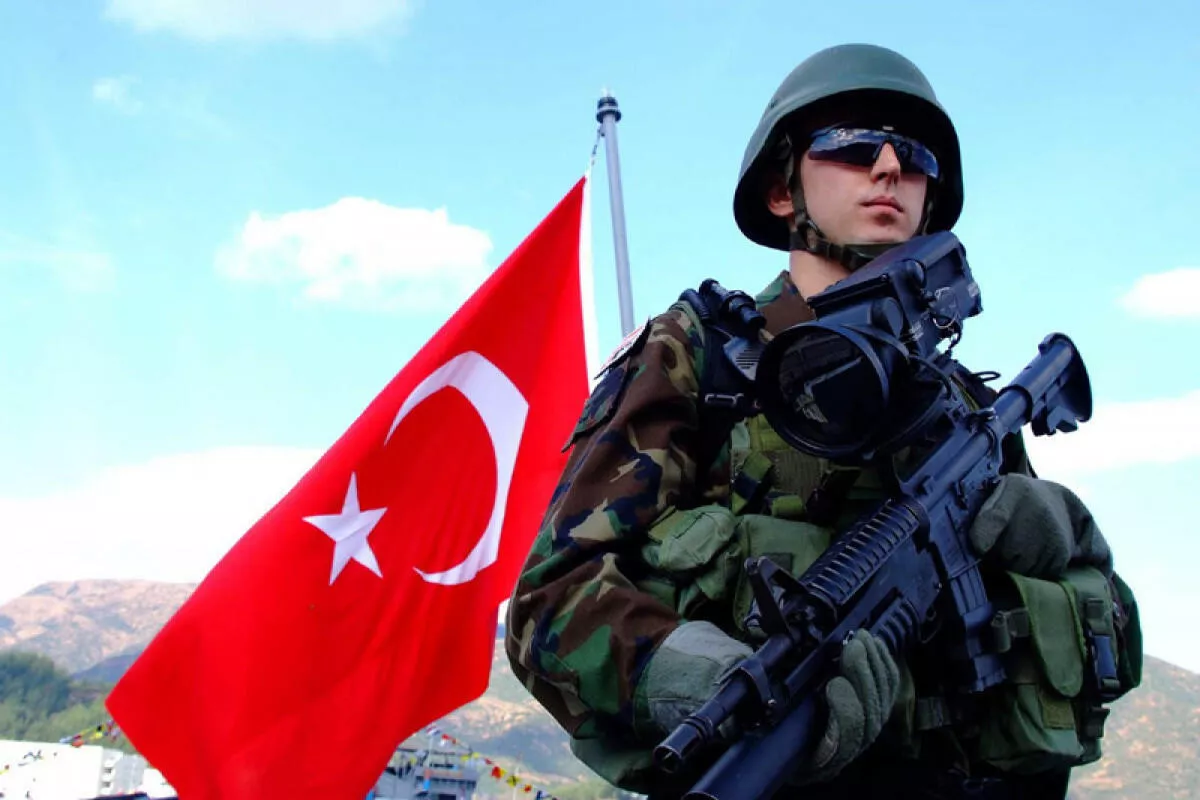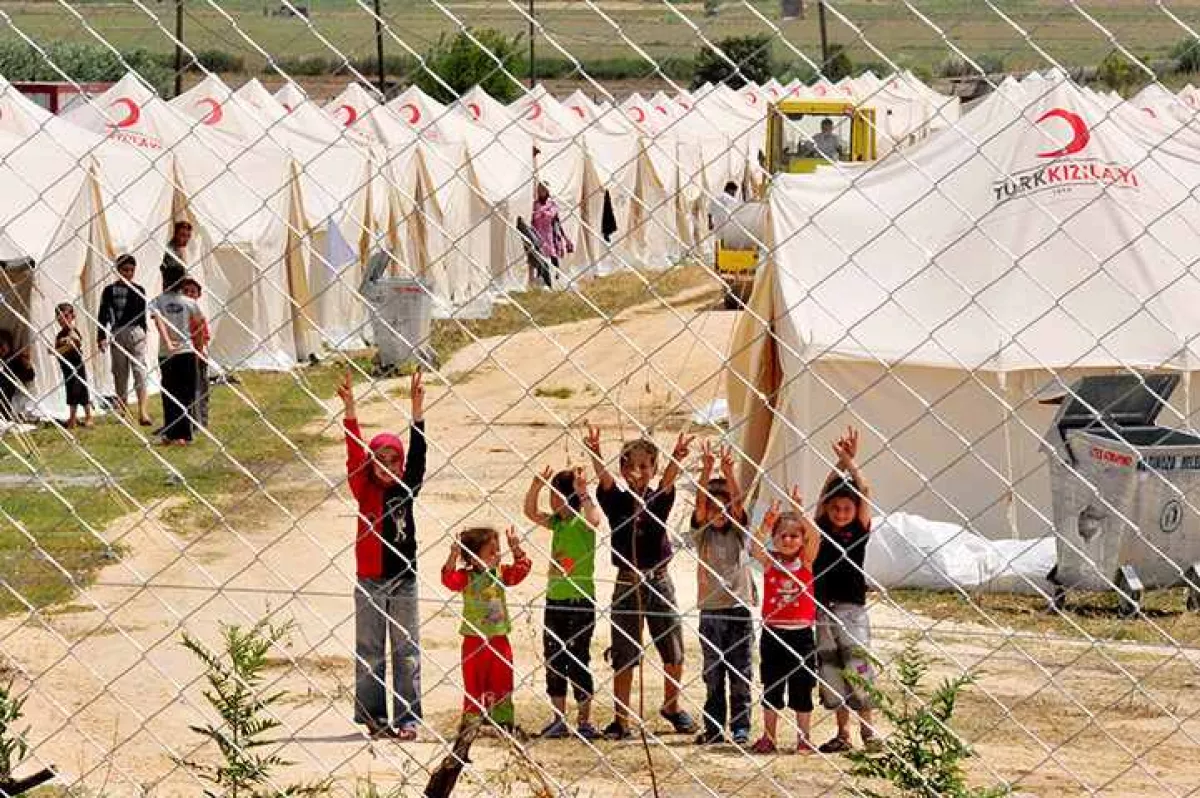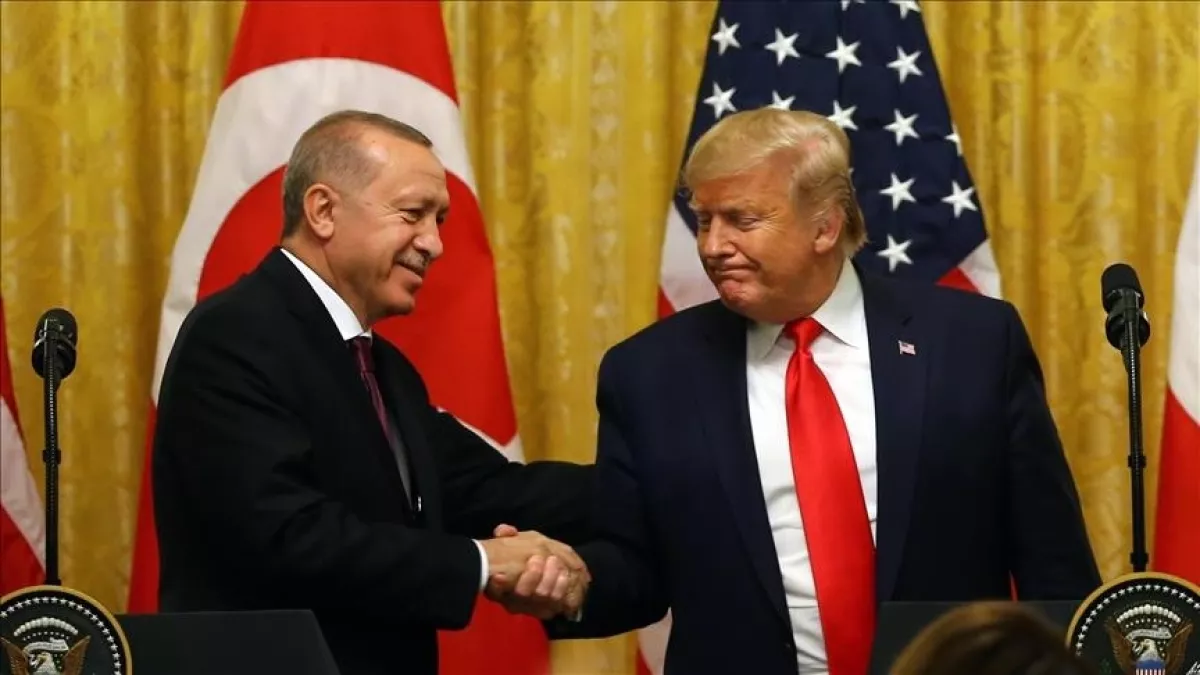Türkiye, Trump, and the Syrian dilemma Expelling PKK forces and resolving the refugee issue
Türkiye remains hopeful about the possibility of reconciliation with Syrian President Bashar al-Assad and the potential withdrawal of US troops from northern Syria. This was recently expressed by Turkish President Recep Tayyip Erdoğan and Defense Minister Yaşar Güler.
"I am still hopeful about Assad. I still have hope that we can come together and hopefully put Syria-Türkiye relations back on track," Erdoğan told journalists during his return flight from the COP29 summit in Baku. He added, " We have extended our hand to the Syrian side regarding normalization. We believe that this normalization will open the door to peace and tranquillity in Syria. We are not the ones threatening Syria’s territorial integrity."
In reality, however, the situation is much more complex. Türkiye has supported armed groups of the Syrian opposition fighting to overthrow Assad since 2011, almost from the very beginning of the Syrian civil war. Later, Erdoğan publicly abandoned the goal of toppling Assad and expressed a willingness to reconcile with Damascus.
Currently, Turkish forces, together with various anti-Assad rebel groups, control several regions in northern and northwestern Syria. Türkiye gained control of these areas through five ground operations conducted between 2016 and 2020.

Assad, who has become a protégé of Iran—without whose support his regime would not have survived the civil war—along with various pro-Iranian militias, including Hezbollah from Lebanon, controls about 60 per cent of Syria, including its capital, Damascus. In reality, this area functions as a zone of influence for both Iran and Russia, the latter of which has also deployed military units there.
Around 25 per cent of Syria, primarily in the north and east, is now under the control of the pro-Kurdish Syrian Democratic Forces (SDF), a coalition comprising the Kurdish People's Defense Units (YPG) and militias from loyal Arab tribes. American troops are also stationed in this region, effectively forming a Kurdish-American coalition.
For Erdoğan's government, in such conditions, there are several priority goals.
First of all, the Turkish state opposes Kurdish armed formations. Ankara is convinced that the Syrian Democratic Forces (SDF) are led by field commanders linked to the PKK (Kurdistan Workers' Party). This organization has waged a war on Turkish territory, seeking autonomy for Kurdish-populated regions. It is officially considered a terrorist organization in Türkiye. At the same time, Ankara believes that the PKK has established control over northern and eastern Syria, managing local militias and cooperating with the US. Therefore, the expulsion of PKK forces from northern Syria is a strategic goal for Türkiye. Ankara intends to establish a 30-kilometre safe zone along the entire 800-kilometre Syrian-Turkish border.
Secondly, the issue of migrants is important for Erdoğan. Türkiye is home to around 4 million Syrian refugees. Most of them have found jobs in various companies, while others, those with the means, have opened tens of thousands of their own businesses. This situation frustrates many in Türkiye. According to some estimates, around 60 per cent of Turkish citizens are opposed to migrants. Some segments of the working class are dissatisfied with the competition they face from Syrians for jobs, while businesses dislike competing with resourceful Syrian traders, many of whom have succeeded due to their international connections. Meanwhile, nationalist ideologues, critical of the government, point to the high birth rate among Syrians and argue that their presence is changing Türkiye’s demographic makeup.

In response, it is argued that nearly a million Syrian children are studying in Turkish schools and speak Turkish better than Arabic and that most migrants are hardworking people simply trying to survive and care for their families. Türkiye, they say, is a large melting pot that has endured many waves of migration. Moreover, the significance of the migrant issue is clearly exaggerated by Erdoğan’s critics. Turkish citizens are much more concerned with the economy. According to recent sociological surveys conducted by ASAL, 60 per cent consider the country’s economy to be the main issue, while only 4.4 per cent identified the migrant issue as the top concern.
Nevertheless, the opposition is attempting to use these debates to attack the government. Therefore, it is crucial for Erdoğan to work towards the return of refugees to Syria. At the very least, he must take demonstrative actions in this direction. According to his plans, after the expulsion of Kurdish forces into the border safe zone, between one and two million Syrian refugees should be resettled there.
It is easy to notice that Türkiye's two main goals — the expulsion of Kurdish formations and solving the issue of Syrian refugees — are interconnected. However, to achieve these objectives, Erdoğan will have to reach an agreement with the US to allow Türkiye to carry out military operations against the Kurds. Additionally, he aims to negotiate with Assad, restoring relations in order to secure his agreement to accept back millions of refugees. But so far, both of these goals have encountered significant obstacles.
The US has not yielded to Erdoğan. While they have allowed Turkish forces and their allies to engage in skirmishes with Kurdish formations, they have so far refused to approve a larger Turkish operation. The US views the areas controlled by the Kurds as part of its sphere of influence and sees the Kurds as a force preventing the strengthening of Iran and its allies, including Assad and Hezbollah, in the region. US cooperation with the Kurds has become one of the main issues that has led to the cooling of relations between Ankara and Washington.
The Assad regime is also reluctant to reconcile with Erdoğan and is unwilling to accept the return of millions of refugees. So far, Ankara has not achieved tangible results in negotiations with Damascus, as the Syrian government has conditioned progress on the withdrawal of Turkish troops from Syrian territory. Moreover, senior officials in Assad’s regime have stated that they do not want the refugees to return, as these individuals are not loyal to the Syrian government. Finally, the refugees themselves are not eager to return, as they have found work and housing in Türkiye, while back home they face interrogations and possibly forced military conscription.

Could Ankara agree to Assad's demand and withdraw its troops from the regions in northern Syria it currently controls? The answer is no. If this were to happen, Assad would immediately launch a military offensive to expel the Syrian opposition from these areas — this is exactly how he has dealt with opposition-controlled zones in the past. As a result, 1.5 million internal Syrian refugees, who fled Assad and are currently in Idlib and other parts of northern Syria controlled by Türkiye, would attempt to move into Türkiye. Instead of solving the refugee issue, Ankara would gain an additional million Syrians.
What could change under Trump?
Türkiye has long sought the US to end its alliance with the Kurdish forces and withdraw American troops from northern Syria. After that, Türkiye hopes to establish the aforementioned safe zone. So far, the US has refused to pull out.

However, a victory for Republican Donald Trump in the elections could bring about changes. During his first term in the White House, Trump made the decision to withdraw American troops from northern Syria and gave permission for a Turkish military operation against the Syrian Democratic Forces (SDF). However, that withdrawal never took place, as it sparked outrage in Congress. Today, things might be different. The Republicans seem likely to control both chambers of Congress, and the party itself is much more loyal to Trump than during his previous term.
In the emerging Trump administration, with its strong anti-Iran stance, there are arguments against withdrawing American troops from Syria. Some officials fear that such a move would strengthen Iran and its ally Assad. Additionally, some American politicians sympathize with the Kurds and the PKK and would not want the Turkish army to enter the Kurdish-majority areas of Syria.
However, if Türkiye’s influence in Syria were to replace that of the US, this is unlikely to strengthen Iran; rather, it would have the opposite effect, argue those who support the idea of US troop withdrawal. Türkiye and Iran are rivals for influence in Syria and the broader Middle East. If Turkish forces were to occupy areas of Syria currently controlled by Kurdish armed formations and US forces, it would only strengthen Türkiye’s influence as a NATO member and weaken Iran’s position.
According to former US National Security Advisor John Bolton, President Trump had the idea of outsourcing part of the Middle East to Türkiye.
Türkiye’s Defense Minister, Yaşar Güler, expressed confidence that Trump would withdraw American troops from Syria. "Personally, I believe Trump will insist on this during his new term, and he could withdraw American forces from Syria and the region," said Güler.








